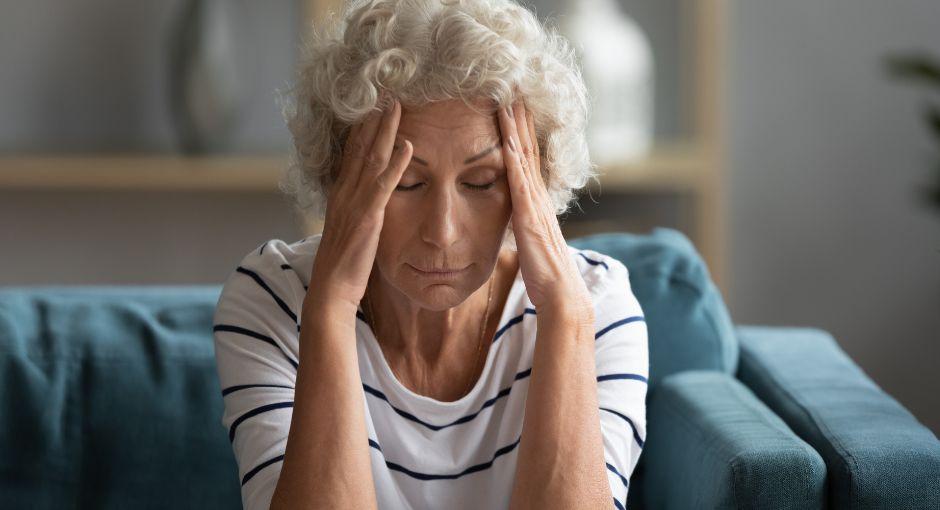What's Hot in PD? If you are Dizzy or Passing Out, it could be Your Parkinson’s Disease or Parkinson’s Medications

Over many years of clinical practice, I have seen many Parkinson’s disease (PD) patients visit the emergency room or clinic because of dizziness and/or syncope (passing out). In most cases, the obligatory cardiac evaluation finds no underlying factor. Many patients are referred to a vestibular physical therapist, someone who specializes in gaze and gait stabilization, to fix vertigo; however, this approach is useful for few patients. Most patients actually have orthostatic hypotension, which can be a manifestation of Parkinson’s and made worse by Parkinson’s medications.
Orthostatic hypotension is common in PD and affects 15 to 50% of patients. It has been defined as a drop in systolic blood pressure of greater than 20 mmHg, or a decrease in diastolic blood pressure of greater than 10mmHg within 3 minutes of changing to a standing position. Dr. Jankovic and colleagues at the Parkinson's Foundation Center of Excellence in Houston, TX, recently published information about orthostatic hypotension in a large series of PD patients. They reviewed the records of 1,318 patients and found that symptomatic orthostatic hypotension occurred in “81% of patients with multiple system atrophy, in 18% of PD, and in 19% with non-multiple system atrophy (MSA) atypical parkinsonism.” They found that orthostatic hypotension occurred in older patients with more advanced PD, and longer disease durations.
When orthostatic hypotension is verified, patients should consider reducing or eliminating the medications that contribute to the problem, including antihypertensive medication. Dopaminergic medications (particularly the dopamine agonists) may worsen orthostatic hypotension. Non-pharmacologic strategies which may improve orthostatic symptoms include increasing fluid intake, increasing dietary salt andcaffeine, and using tight, thigh-high support stockings to prevent pooling of blood below the waist. Purchasing a hospital bed, or raising the head of a normal bed 10-30 degrees may improve standing blood pressure when performed on a regular basis over several weeks.. If needed, pharmacologic agents to raise blood pressure may be used.
Orthostatic Hypotension Treatments
- Fludrocortisone 0.1 mg once daily
- Midodrine
5-10 mg three times per day; last dose should not be after 6pm to avoid supine hypertension - Ephedrine
25-50 mg q4-6 hours - Phenylpropanolamine start 25 mg twice per day or
Ergotamine/caffeine tablets
Do not take after dinner to avoid insomnia and supine hypertension.
Finally, some practitioners add drugs named Mestinon and Midodrine, used for myasthenia gravis, or other drug treatments. There is also a medication in clinical trials called droxidopa, L-threo-3,4,-dihydroxyphenylserine. This drug is a pro-drug of norepinephrine. The drug has been promising in MSA and cases of pure autonomic failure. Many scientists are working to discover if and how this drug may be used in PD.
The bottom line for PD patients who are passing out (syncope), or getting dizzy, especially when standing up or when changing positions, is that this may be your Parkinson’s disease, your Parkinson’s disease medications or both. Consult your doctor immediately, and have your blood pressure taken while laying down, sitting and standing. There are many potentially effective strategies that may improve your quality of life, and may also prevent dizziness and passing out.
Selected References

Ha AD, Brown CH, York MK, Jankovic J. The prevalence of symptomatic orthostatic hypotension in patients with Parkinson's disease and atypical parkinsonism. Parkinsonism Relat Disord. 2011 Jun 18.
Mostile G, Jankovic J. Treatment of dysautonomia associated with Parkinson's
disease. Parkinsonism Relat Disord. 2009 Dec;15 Suppl 3:S224-32.
Okun MS, Fernandez HH. Ask the Doctor about Parkinson’s Disease. Demos Medical Publishing, 2010.
You can find out more about our National Medical Director, Dr. Michael S. Okun, by also visiting the Center of Excellence, University of Florida Health Center for Movement Disorders and Neurorestoration. Dr. Okun is also the author of the Amazon #1 Parkinson's Best Seller 10 Secrets to a Happier Life and 10 Breakthrough Therapies for Parkinson's Disease.
Related Blog Posts

Meet the Researcher Working to Restore Sleep in Parkinson’s

Mapping the Brain in High Resolution: How the University of Michigan is Advancing Parkinson’s Neuroscience
